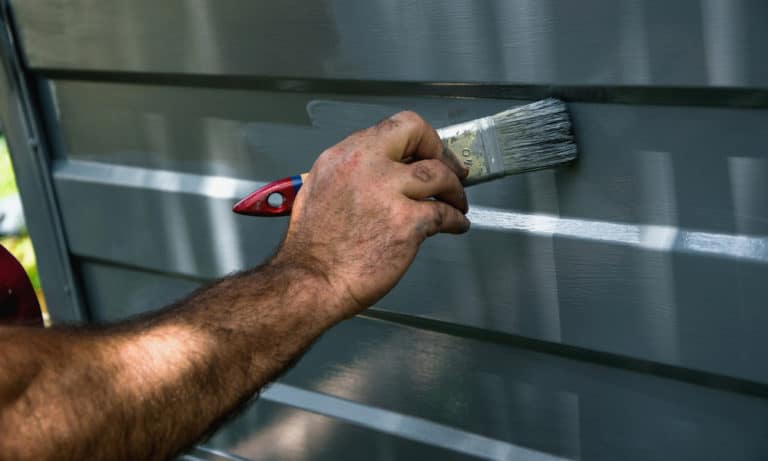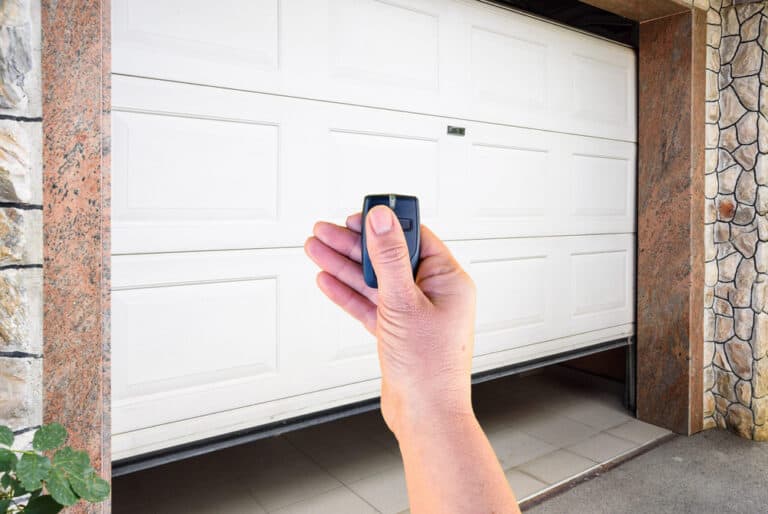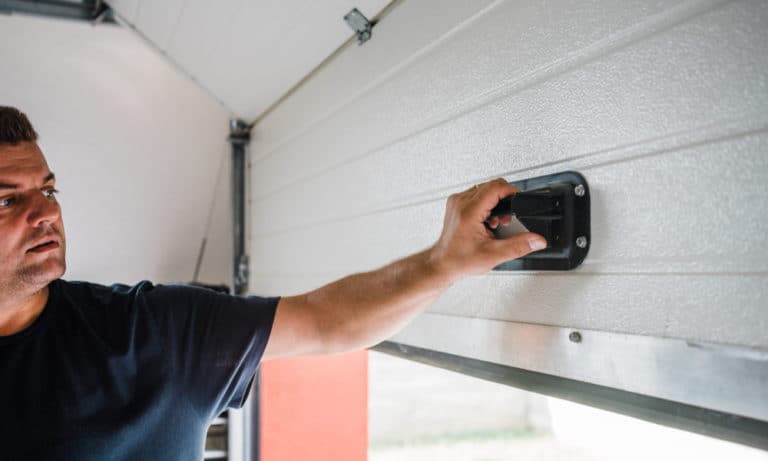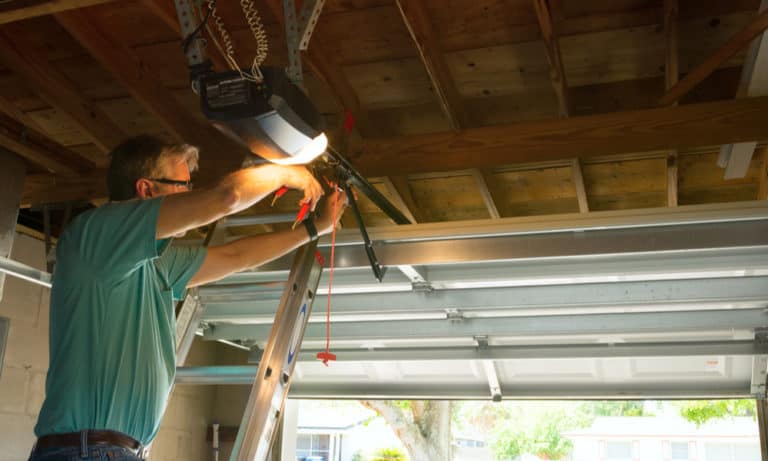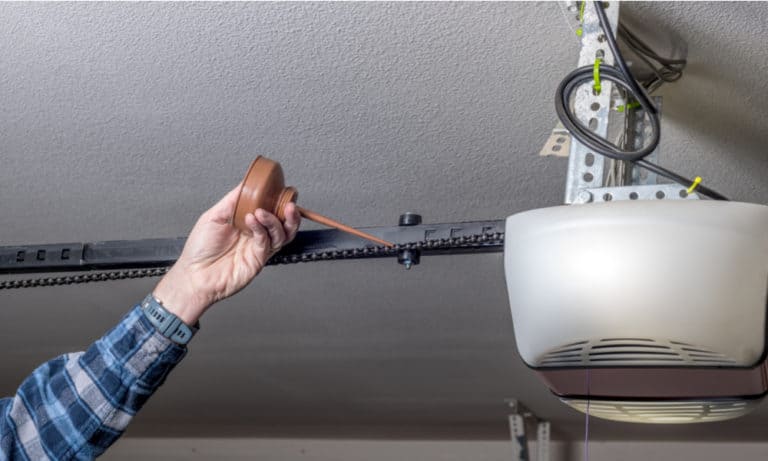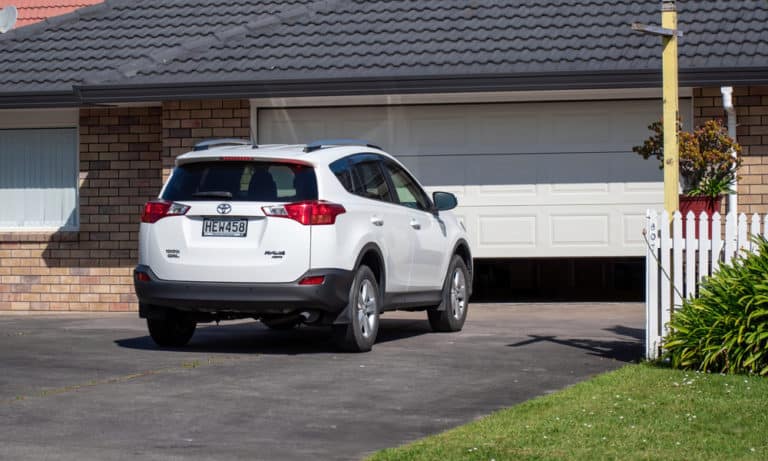Painting a garage door sounds like something that should be simple, and it usually is – at least as long as you use the right paint and primer, apply enough layers, and so on.
But what about the door’s color? Is that decision purely aesthetical or is there more to it? And why is the color black so controversial when it comes to garage doors? Are black garage doors a bad idea, if so – why, and why are they so popular anyway? Let’s go through all of that point by point below.
Are black garage doors a bad idea?
Yes and no. Or rather – often they are a bad idea, sometimes they are ok, and in some cases, they can even be the best idea you can have. It all depends on your circumstances and environment.
Still, let’s first talk about the reasons why your black dream door isn’t always such a good idea:
1. Black doors and surfaces absorb a lot of heat
This is the most-cited reason why black garage doors (also roofs and walls) are not recommended. It may sound like a bit of an exaggeration at first but it’s 100% true – if you live in a warmer climate, black paint anywhere on any building, including its doors, becomes a very bad idea.
If you’re wondering whether you live in such an area – we’d say any place that regularly gets temperatures of and above 95o Fahrenheit (35o Celsius) in the summer fit this description.
But why exactly is that so important? In essence – black surfaces absorb all wavelengths of the light spectrum and therefore absorb more light as a whole (hence why the black color looks the way it does). This also means that black surfaces absorb more heat together with all that light, however.
That’s why walking in the summer sun with black clothes is also a bad idea – the same overheating that happens to you if you do that happens to your garage if the door, walls, and/or roof are black. And, since garage doors are usually pretty big and made of metal, even if they are the only thing colored in black, that is often more than enough to significantly raise the temperature inside the garage in the summer.
All this means that, with a black door and without good insulation, your home’s energy costs can skyrocket in the summer if you need/want to keep your garage relatively cool. And all that is just unnecessary since you can drop your garage’s average summer temperature by multiple degrees with a more lightly colored door.
2. The color black fades away very easily and noticeably
Aside from the temperature issue, black color is also subject to fading much more so than any other color. This isn’t because black color is “worse” or “less durable” than other colors, of course – it’s just that even the smallest color fading is extra noticeable on black surfaces.
The same applies to a smaller degree to any deeper color compared to its lighter alternatives. This means that especially if your garage door is going to be in direct sunlight and you live in a relatively sunny climate, your garage’s black door is going to catch lots of UV rays and get a lighter shade very quickly.
This problem can be easily avoided if you just paint your garage in a lighter color such as light grey, light blue, or anything of the sort. That color will still be affected by the sunlight, it just won’t be as noticeable.
3. Dirt and stains are much more noticeable on black doors, as is general wear and tear
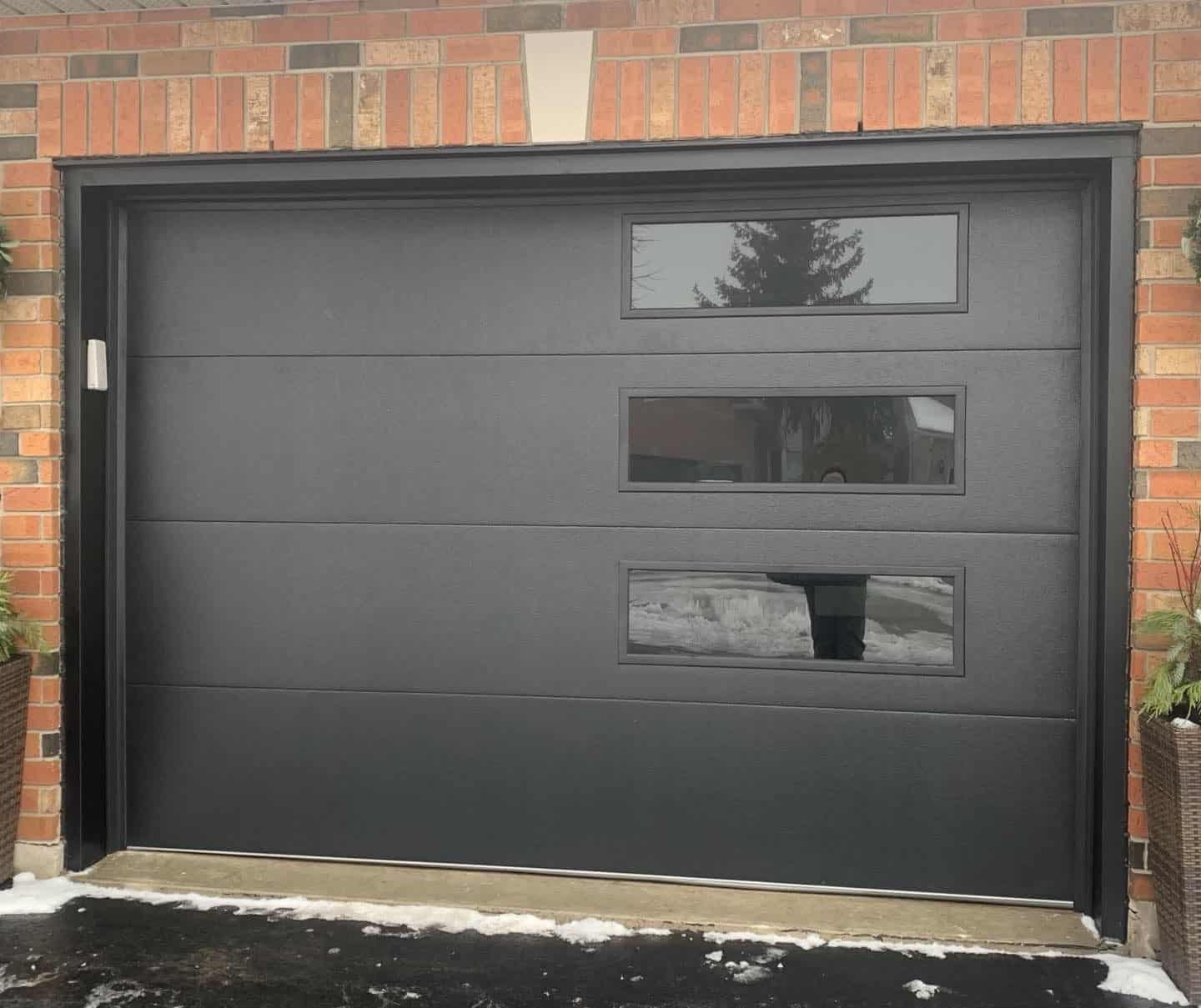
A similar problem to the one above is that stuff such as dust, grime, dirt, and basic wear and tear are all extra visible on a black door surface compared to lighter colors. That’s simply because most of those messy substances are usually of a lighter color themselves which makes them stand out on black surfaces even more.
On a lighter garage door, however, a bit of dust or dirt just doesn’t catch the eye so much. They are still there, of course, and you’ll still need to clean your lighter garage door every once in a while. However, unless you want to have to reach out for the soap every other day, it’s just simpler to go for literally any other color than black.
4. Black doors require the highest quality paint and coating
Because of the two previous reasons, if you insist on painting your garage door with black paint, you’d do well to go for the best possible type of paint and primer you can find. A low quality paint you’ve just lightly spread with a brush just won’t last long, especially if it’s in direct sunlight and in a windy location.
This isn’t to say that other paint colors don’t need to be of high quality, of course – it’s just especially important for black garage doors.
Why do so many people prefer black doors anyway?
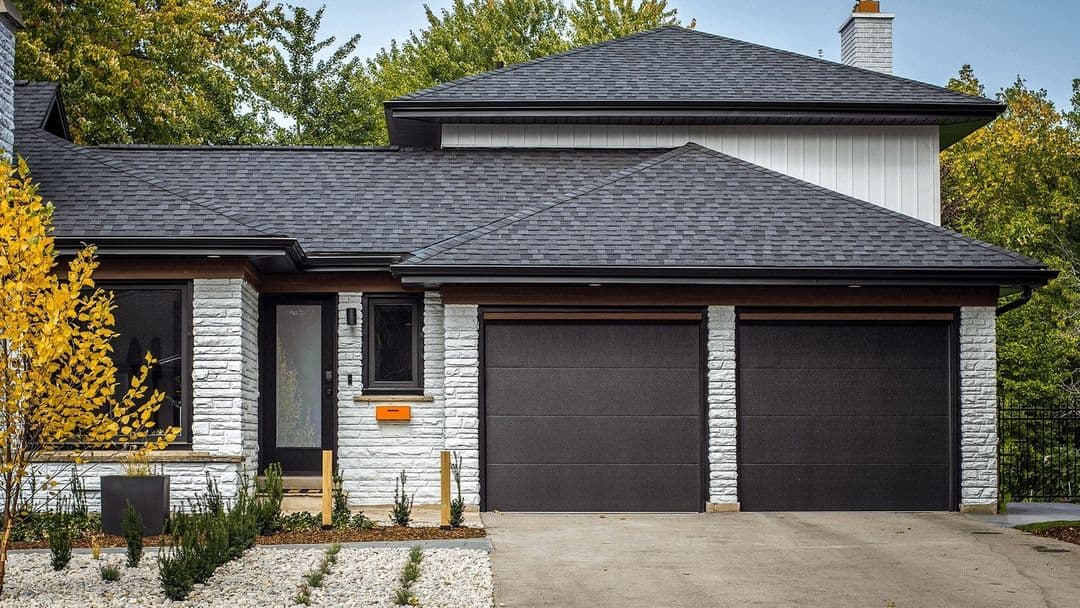
Black is a popular color but is that all that goes to the curb appeal of black garage doors or do they have actual benefits we shouldn’t ignore? Well – both.
1. The black color’s heat retention can be good in colder climates
A certain case in which the light and heat retention of black garage doors is a good choice is when you live in a colder climate and you can actually do with a bit of extra warmth in your garage.
If the summers in your area are truly never all that hot (just keep climate change in mind when you answer that one for yourself) then painting your garage door black won’t do you any harm. On the contrary – it may even help raise the temperature inside your garage by a degree or two and help with the energy bills.
Just keep in mind that the effect won’t be as drastically positive in this case as drastically negative as it is in the opposite situation.
2. Black is just stylish in general
If we’re being truthful, we all know the real reason why so many homeowners choose black over the many different colors and shades for their garage’s front door – black looks cool. You don’t need to be an expert in home design to know that the color black can look excellent on most homes, almost regardless of their color scheme.
So, when a lot of people are designing their homes and are wondering what’s the right color for their new garage door, black just often feels like the safest bet to go to. After all, your home’s exterior often doesn’t go well with any color of your garage door. In many cases, it’s your neighbor’s homes and other features of the neighborhood that make certain colors unpalatable.
So, should you ever go for a black garage door?
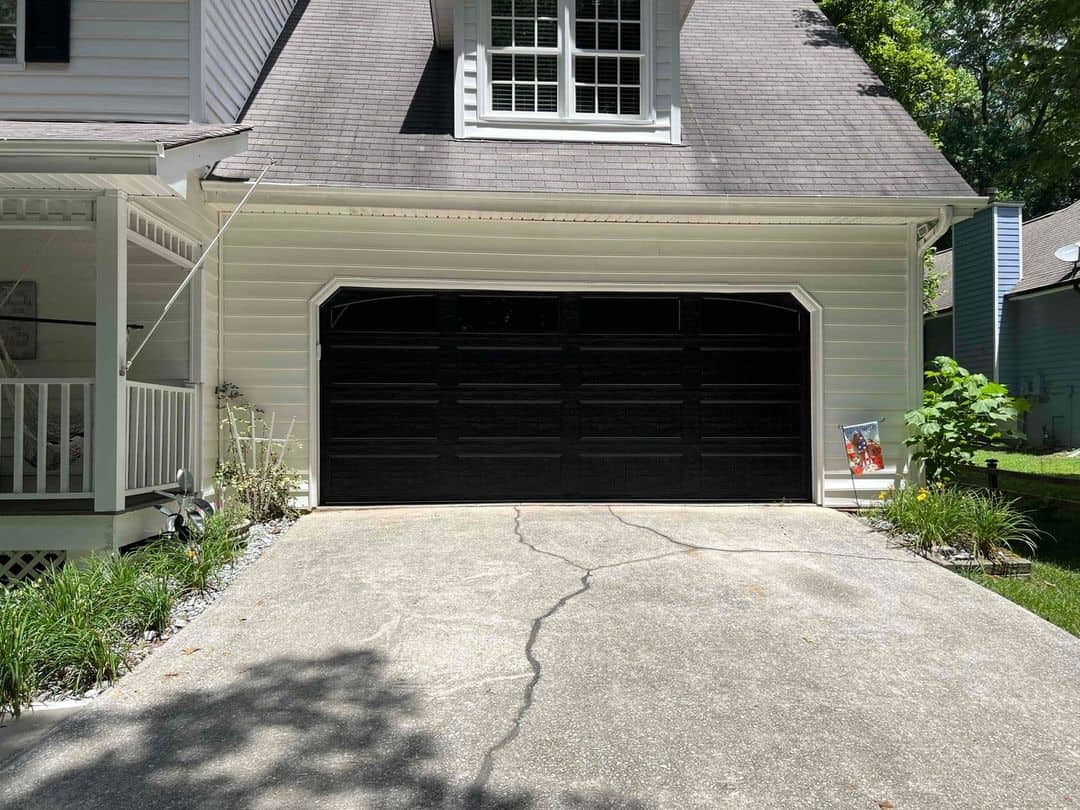
Even if black really seems like the best-looking color for your garage door from a design standpoint and even if you live in a cold climate, we’d still urge you to reconsider. Even further to the north, the thermal benefits of a black garage door aren’t all that significant.
The drawbacks of having to more frequently clean and maintain the door, however, as well as the major drawback of accidentally turning your garage into a sauna in the summer, if you live even a little bit to the south – those typically significant enough so that we’d recommend going with a different color.
In conclusion
Of all the possible garage door colors, it’s both surprising and unsurprising that black is the most controversial one. When you look into why, however, it becomes relatively clear why black garage doors are a bad idea in most cases.
Yes, they can be a good choice in colder climates and they do look great on some buildings. However, the very fast fading of the color, the awfully noticeable effects of dirt, dust, wear & tear, as well as the quality requirements on the paint job make the black color a not-so-great option. Add the big factor – how bad black garage doors are in hot summers – and the choice becomes clear for most homeowners.
Still, if your heart is set on a black garage door, it’s also not the end of the world – just make sure that the paint job is good, that you clean and maintain it well, and that you have a plan for the ventilation and temperature-control of your garage if you happen to live in a warmer climate.

